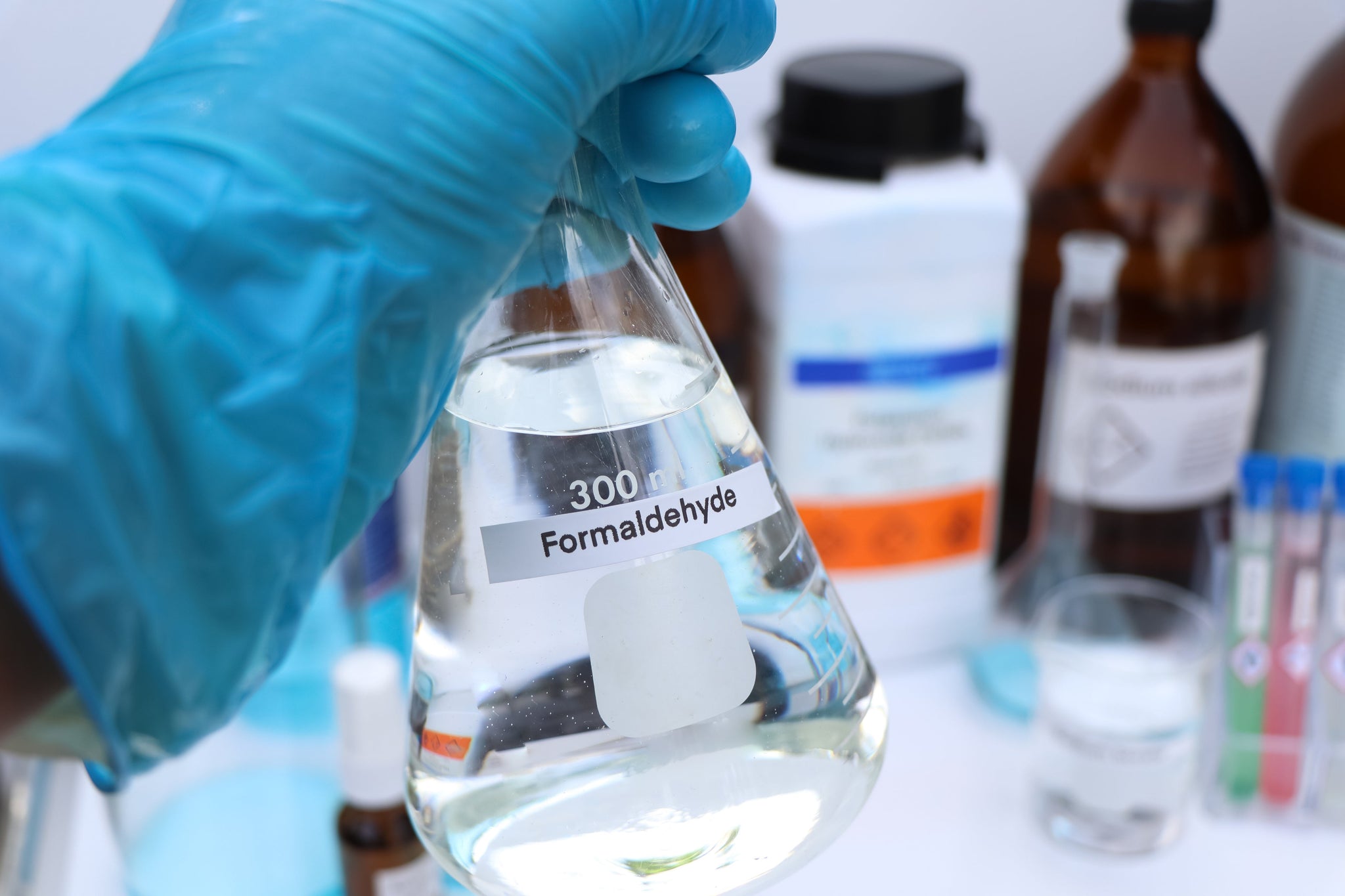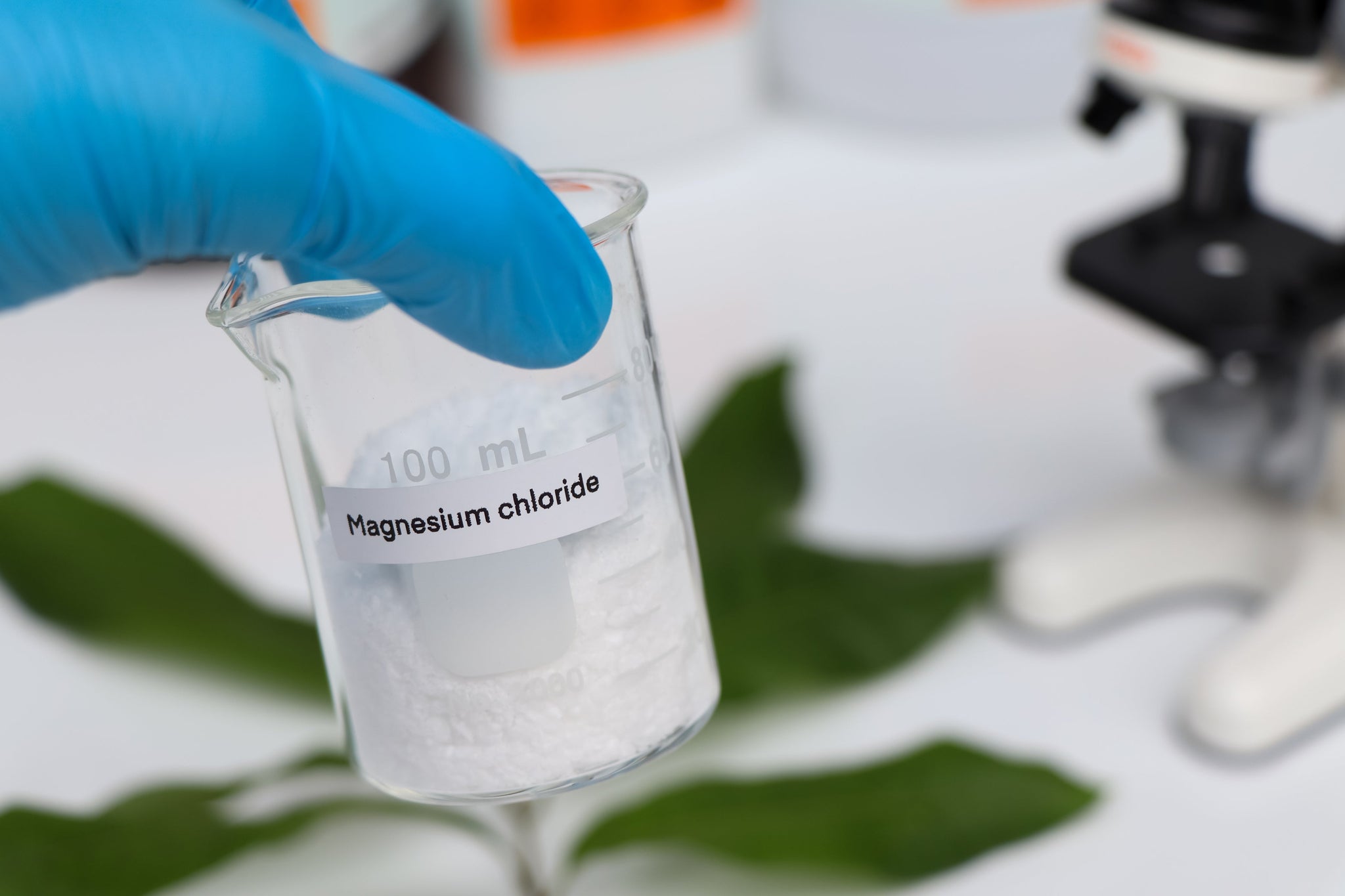All Articles

Formaldehyde Safety & Hazards
Formaldehyde is a toxic, corrosive, and carcinogenic chemical used in industry and labs that requires strict safety controls. This guide explains its hazard classifications, exposure risks, health effects, and first aid measures, along with safe handling, storage, spill response, and regulatory compliance. Learn how to protect workers, facilities, and the environment when working with this high-risk compound.
Formaldehyde is a toxic, corrosive, and carcinogenic chemical used in industry and labs that requires strict safety controls. This guide explains its hazard classifications, exposure risks, health effects, and first aid measures, along with safe handling, storage, spill response, and regulatory compliance. Learn how to protect workers, facilities, and the environment when working with this high-risk compound.

Ferrous Sulfate Uses & Applications
Ferrous sulfate is one of the most versatile iron compounds, used in water treatment, agriculture, pharmaceuticals, construction, and research. This guide explains its roles as a coagulant, reducing agent, nutrient source, and chemical intermediate. Learn how it supports wastewater treatment, soil enrichment, iron supplementation, pigment production, and more, plus available grades and pack sizes from Lab Alley.
Ferrous sulfate is one of the most versatile iron compounds, used in water treatment, agriculture, pharmaceuticals, construction, and research. This guide explains its roles as a coagulant, reducing agent, nutrient source, and chemical intermediate. Learn how it supports wastewater treatment, soil enrichment, iron supplementation, pigment production, and more, plus available grades and pack sizes from Lab Alley.

Ferrous Sulfate Overview
Ferrous sulfate is a pale green crystalline iron salt used in medicine, agriculture, water treatment, and manufacturing. This guide covers its properties, solubility, reactivity, and key applications in supplements, fertilizers, and industrial processes. Learn essential safety protocols, storage requirements, and sourcing options, including USP, ACS, technical, and food grades with packaging sizes from lab containers to bulk shipments.
Ferrous sulfate is a pale green crystalline iron salt used in medicine, agriculture, water treatment, and manufacturing. This guide covers its properties, solubility, reactivity, and key applications in supplements, fertilizers, and industrial processes. Learn essential safety protocols, storage requirements, and sourcing options, including USP, ACS, technical, and food grades with packaging sizes from lab containers to bulk shipments.

Formaldehyde Shelf Life & Expiration
Formaldehyde typically lasts 12-24 months when stored in sealed containers under controlled conditions. Over time, it degrades through oxidation or polymerization, which can reduce effectiveness and create safety concerns. This guide explains formaldehyde’s shelf life, key signs of expiration, proper disposal procedures, and best practices for storage to help ensure safe and reliable use in labs, industry, and preservation work.
Formaldehyde typically lasts 12-24 months when stored in sealed containers under controlled conditions. Over time, it degrades through oxidation or polymerization, which can reduce effectiveness and create safety concerns. This guide explains formaldehyde’s shelf life, key signs of expiration, proper disposal procedures, and best practices for storage to help ensure safe and reliable use in labs, industry, and preservation work.

Formaldehyde Uses & Applications
Formaldehyde is a highly versatile compound used in resins, coatings, textiles, healthcare, agriculture, and scientific research. This guide explains its role in manufacturing durable materials, preserving specimens, enabling chemical synthesis, and supporting water treatment. Learn about its industrial, medical, and environmental applications, plus safety protocols, regulations, and available grades for professional use.
Formaldehyde is a highly versatile compound used in resins, coatings, textiles, healthcare, agriculture, and scientific research. This guide explains its role in manufacturing durable materials, preserving specimens, enabling chemical synthesis, and supporting water treatment. Learn about its industrial, medical, and environmental applications, plus safety protocols, regulations, and available grades for professional use.

Types of Ferrous Sulfate
Ferrous sulfate is used in medicine, agriculture, and industry, but each application requires the right grade and form. This guide explains pharmaceutical, agricultural, and industrial grades, plus common forms like heptahydrate crystals, anhydrous powder, granules, and liquid solutions. Learn how certifications, purity, and regulatory standards determine safe and effective use in supplements, fertilizers, and wastewater treatment.
Ferrous sulfate is used in medicine, agriculture, and industry, but each application requires the right grade and form. This guide explains pharmaceutical, agricultural, and industrial grades, plus common forms like heptahydrate crystals, anhydrous powder, granules, and liquid solutions. Learn how certifications, purity, and regulatory standards determine safe and effective use in supplements, fertilizers, and wastewater treatment.

How to Store Ferrous Sulfate
Ferrous sulfate is highly sensitive to moisture and oxidation, making proper storage essential for safety and effectiveness. This guide explains the best conditions for temperature, humidity, and light control, plus the right containers and sealing methods to prevent degradation. Learn how to segregate incompatible chemicals, handle transfers safely with PPE, and meet OSHA, DOT, and environmental compliance requirements while maintaining product quality.
Ferrous sulfate is highly sensitive to moisture and oxidation, making proper storage essential for safety and effectiveness. This guide explains the best conditions for temperature, humidity, and light control, plus the right containers and sealing methods to prevent degradation. Learn how to segregate incompatible chemicals, handle transfers safely with PPE, and meet OSHA, DOT, and environmental compliance requirements while maintaining product quality.

How and Why to Neutralize Ferrous Sulfate
Ferrous sulfate is common in wastewater treatment, agriculture, and manufacturing, but its acidity creates safety, equipment, and environmental risks. This guide explains why neutralization is necessary for spill response, process stability, and regulatory compliance. Learn step-by-step methods for pH adjustment, iron precipitation, and safe waste disposal, plus essential safety practices and PPE for handling ferrous sulfate in labs and industrial facilities.
Ferrous sulfate is common in wastewater treatment, agriculture, and manufacturing, but its acidity creates safety, equipment, and environmental risks. This guide explains why neutralization is necessary for spill response, process stability, and regulatory compliance. Learn step-by-step methods for pH adjustment, iron precipitation, and safe waste disposal, plus essential safety practices and PPE for handling ferrous sulfate in labs and industrial facilities.

How to Safely Dispose of Ferrous Sulfate
Ferrous sulfate is used in labs, agriculture, and industry, but disposal rules vary by quantity, contamination, and location. This guide explains why proper disposal matters, from preventing soil and water contamination to protecting workers and meeting regulatory standards. Learn disposal methods for small and large volumes, when to use certified waste services, and the PPE and storage practices that ensure safe, compliant handling.
Ferrous sulfate is used in labs, agriculture, and industry, but disposal rules vary by quantity, contamination, and location. This guide explains why proper disposal matters, from preventing soil and water contamination to protecting workers and meeting regulatory standards. Learn disposal methods for small and large volumes, when to use certified waste services, and the PPE and storage practices that ensure safe, compliant handling.

Ferrous Sulfate Shelf Life & Expiration
Ferrous sulfate is widely used in supplements, water treatment, and industry, but its stability depends on proper storage. This guide explains how long different grades last, the environmental factors that cause expiration, and the warning signs of degraded material. Learn best practices for storage, disposal of expired stock, and how to maintain reliable performance in pharmaceutical, agricultural, and industrial applications.
Ferrous sulfate is widely used in supplements, water treatment, and industry, but its stability depends on proper storage. This guide explains how long different grades last, the environmental factors that cause expiration, and the warning signs of degraded material. Learn best practices for storage, disposal of expired stock, and how to maintain reliable performance in pharmaceutical, agricultural, and industrial applications.

Ferrous Sulfate Safety & Hazards
Ferrous sulfate is widely used in supplements, agriculture, and industry, but it poses real safety risks when mishandled. This guide explains its chemical hazards, health effects, first aid measures, and safe handling practices. Learn about storage rules, spill response, regulatory requirements, and protective equipment to keep workers and facilities safe.
Ferrous sulfate is widely used in supplements, agriculture, and industry, but it poses real safety risks when mishandled. This guide explains its chemical hazards, health effects, first aid measures, and safe handling practices. Learn about storage rules, spill response, regulatory requirements, and protective equipment to keep workers and facilities safe.

Chloroform Overview
Chloroform is a dense, volatile solvent used in laboratories, manufacturing, and research. This guide covers properties, common uses, safety risks, storage rules, grades, and buying considerations. Learn how purity, stabilizers, and packaging affect performance and regulatory compliance.
Chloroform is a dense, volatile solvent used in laboratories, manufacturing, and research. This guide covers properties, common uses, safety risks, storage rules, grades, and buying considerations. Learn how purity, stabilizers, and packaging affect performance and regulatory compliance.

Types of Chloroform
Chloroform is a volatile solvent used in labs, pharma, and industry. Grades vary by purity and stabilizer. These differences change safety, compliance, and performance. This guide compares common types, certifications, and applications to help you choose the right grade.
Chloroform is a volatile solvent used in labs, pharma, and industry. Grades vary by purity and stabilizer. These differences change safety, compliance, and performance. This guide compares common types, certifications, and applications to help you choose the right grade.

How to Store Chloroform
Chloroform requires strict storage practices to stay stable and safe. This guide explains the best conditions for temperature, light protection, and ventilation, plus container types, labeling requirements, and chemical segregation rules. Learn how to prevent phosgene formation, avoid toxic vapor release, and stay compliant with OSHA, EPA, DOT, and REACH regulations when storing chloroform in labs or industrial facilities.
Chloroform requires strict storage practices to stay stable and safe. This guide explains the best conditions for temperature, light protection, and ventilation, plus container types, labeling requirements, and chemical segregation rules. Learn how to prevent phosgene formation, avoid toxic vapor release, and stay compliant with OSHA, EPA, DOT, and REACH regulations when storing chloroform in labs or industrial facilities.

How and Why to Neutralize Chloroform
Chloroform is a widely used but hazardous solvent that requires strict control. This guide explains why neutralization is essential for safety, chemical stability, and compliance. Learn about common methods such as zinc reduction and adsorption, how to monitor results, and best practices for safe handling, waste treatment, and protective equipment in labs and industry.
Chloroform is a widely used but hazardous solvent that requires strict control. This guide explains why neutralization is essential for safety, chemical stability, and compliance. Learn about common methods such as zinc reduction and adsorption, how to monitor results, and best practices for safe handling, waste treatment, and protective equipment in labs and industry.

How to Safely Dispose of Chloroform
Chloroform requires specialized disposal to protect people and the environment. Follow federal and local rules, store waste in sealed, labeled containers, and hire certified hazardous waste services. Use full PPE and never mix or evaporate chloroform.
Chloroform requires specialized disposal to protect people and the environment. Follow federal and local rules, store waste in sealed, labeled containers, and hire certified hazardous waste services. Use full PPE and never mix or evaporate chloroform.

Chloroform Shelf Life & Expiration
Chloroform’s shelf life depends on stabilizer type, purity, and storage. Learn how ethanol or amylene stabilization, packaging, and light exposure affect its stability, how to spot expired material, and how to handle or replace it safely.
Chloroform’s shelf life depends on stabilizer type, purity, and storage. Learn how ethanol or amylene stabilization, packaging, and light exposure affect its stability, how to spot expired material, and how to handle or replace it safely.

Magnesium Chloride Overview
Magnesium chloride is a versatile salt used in manufacturing, agriculture, laboratories, and consumer products. This guide explains its properties, solubility, and reactivity, along with safety precautions and storage tips. Learn about industrial, pharmaceutical, and household applications, plus available grades and pack sizes to help you choose and source the right magnesium chloride for your needs.
Magnesium chloride is a versatile salt used in manufacturing, agriculture, laboratories, and consumer products. This guide explains its properties, solubility, and reactivity, along with safety precautions and storage tips. Learn about industrial, pharmaceutical, and household applications, plus available grades and pack sizes to help you choose and source the right magnesium chloride for your needs.

Magnesium Chloride Safety & Hazards
Although magnesium chloride is considered a low-risk chemical, safe handling is essential to prevent irritation, contamination, and workplace hazards. This guide explains exposure risks, first aid measures, PPE requirements, and spill response procedures. Explore its GHS classification, storage guidelines, and regulatory standards to manage magnesium chloride safely and responsibly.
Although magnesium chloride is considered a low-risk chemical, safe handling is essential to prevent irritation, contamination, and workplace hazards. This guide explains exposure risks, first aid measures, PPE requirements, and spill response procedures. Explore its GHS classification, storage guidelines, and regulatory standards to manage magnesium chloride safely and responsibly.

Chloroform Uses & Applications
Chloroform is a powerful solvent and chemical intermediate used in controlled industrial, laboratory, and pharmaceutical settings. This guide explores its modern applications in manufacturing, chemical synthesis, and research, while outlining the restrictions that prevent its use in food, consumer, and household products. Learn how chloroform remains valuable despite safety and regulatory limits.
Chloroform is a powerful solvent and chemical intermediate used in controlled industrial, laboratory, and pharmaceutical settings. This guide explores its modern applications in manufacturing, chemical synthesis, and research, while outlining the restrictions that prevent its use in food, consumer, and household products. Learn how chloroform remains valuable despite safety and regulatory limits.

Chloroform Safety & Hazards
Handling chloroform requires extreme caution due to its toxicity and regulatory restrictions. This guide explains its health risks, from acute dizziness and nausea to long-term liver and kidney damage. Explore hazard classifications, protective equipment, safe storage practices, fire risks, and compliance standards to ensure safe and responsible use in laboratories and industry.
Handling chloroform requires extreme caution due to its toxicity and regulatory restrictions. This guide explains its health risks, from acute dizziness and nausea to long-term liver and kidney damage. Explore hazard classifications, protective equipment, safe storage practices, fire risks, and compliance standards to ensure safe and responsible use in laboratories and industry.

How and Why to Neutralize Magnesium Chloride
Magnesium chloride is widely used in industry, labs, agriculture, and de-icing, but concentrated solutions can cause irritation, corrosion, and environmental harm. Neutralizing magnesium chloride stabilizes pH, removes impurities, and ensures safe disposal. Learn why neutralization is important, how to carry it out step by step, and the best practices for compliance and safety.
Magnesium chloride is widely used in industry, labs, agriculture, and de-icing, but concentrated solutions can cause irritation, corrosion, and environmental harm. Neutralizing magnesium chloride stabilizes pH, removes impurities, and ensures safe disposal. Learn why neutralization is important, how to carry it out step by step, and the best practices for compliance and safety.

Types of Magnesium Chloride
Magnesium chloride is used across food, pharmaceutical, agricultural, and industrial sectors, but not all grades are the same. This guide explains the differences between food, pharmaceutical, ACS, and industrial-grade magnesium chloride, as well as available forms like flakes, pellets, and liquids. Learn how purity, certifications, and applications determine the right type for safe and compliant use.
Magnesium chloride is used across food, pharmaceutical, agricultural, and industrial sectors, but not all grades are the same. This guide explains the differences between food, pharmaceutical, ACS, and industrial-grade magnesium chloride, as well as available forms like flakes, pellets, and liquids. Learn how purity, certifications, and applications determine the right type for safe and compliant use.

Customer Stories
Real reviews from real customers.

Industries
Find chemicals for your industry.

Product Categories
Real reviews from real customers.

Product Specs
Product Specification Sheets for essential chemicals.

SDS
Printable chemical material Safety Data Sheet PDFs.

COA
Printable Certificates of Analysis in PDF format.

